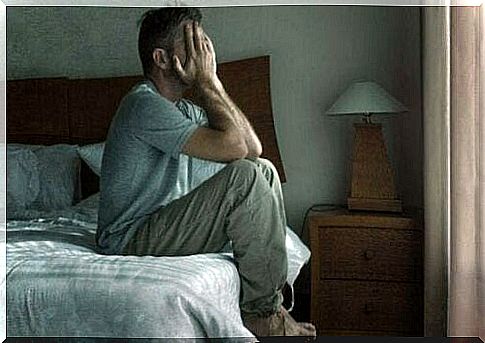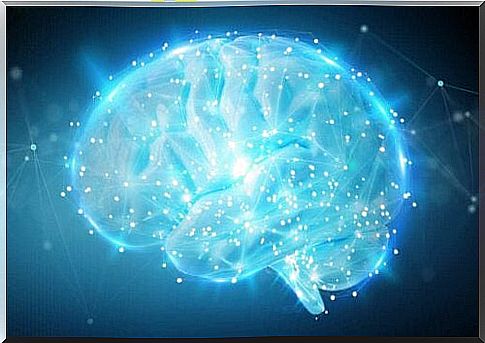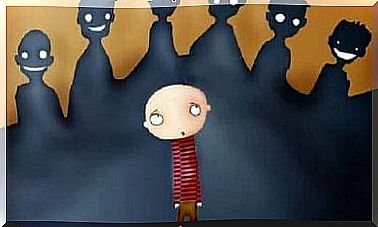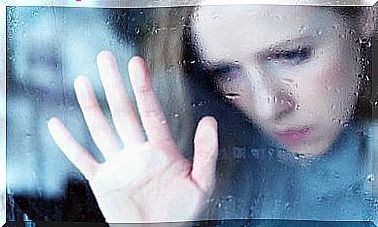Too Little Sleep Creates False Memories

“So it did not happen? Are you telling me that what I just said never happened?… “ Do you sometimes find yourself saying that kind of thing? Do you think that certain things have happened when they have not happened? If so, you need to know something. The fact that too little sleep creates false memories.
We all doubt our own memories at some point. Sometimes you can e.g. find yourself arguing with someone about certain things that you are convinced have actually happened.
You can sometimes even wonder if you are being manipulated by friends and family. In fact, there are few things more unpleasant than being told “What are you talking about? It never happened! ”
You may be wondering if you are losing your memory. But if you have had those kinds of experiences, the best thing you can do is think about your lifestyle. For example, stress can affect your memory in the same way that lack of sleep can. In fact, you need to be fully aware of how sleep is one of your best friends for a healthy brain.
Let’s learn a little more about it.

Beware… too little sleep creates false memories
When you remember a situation from a recent or past event, you do not evoke it as if you were looking at a photo from a photo album. This is because your memory is not 100 percent perfect.
In most cases, you tend to interpret only small details. Nevertheless, these kinds of interpretations do not change the meaning of this memory.
Let us e.g. say your car is broken and you want to take it to the same workshop that your brother uses. You more or less know what street it’s on because you were once there with him, but you can not remember the street name or number.
However, this memory is still functional: it allows you to act on a specific need.
If you suffer from insomnia , you always have problems when it comes to retrieving specific data or information. In this particular scenario, for example, you think the mechanic was recommended to you by a colleague and not your brother. You therefore resort to false memory.
Why is this happening? What is the cause of these mentally debilitating events?
The brain and night sleep
In 2016, Duke University conducted an interesting study on sleep and false memory. The study highlighted that young people in many countries sleep less than the 8-10 hours recommended for their age. This affects their academic performance.
However, this effect is greater as you get older. In fact, your brain requires you to sleep an average of 7 or 8 hours to perform data storage, control, and restoration. Therefore, if you do not reach the REM phase of sleep, many of these functions will not be performed effectively.
In other words, a proper night’s sleep gives you the perfect neurobiological conditions for the proper consolidation of both short and long term memories. Getting too little sleep impairs your retrieval of them.
The consequence of this is clear. By the need to evoke your past experiences, your brain has no choice but to invent them.
This is because your impulse will always be to “fill in the gaps”. In fact, the University of Lübeck (Germany) has conducted a study in Germany that found that people often claim with certainty that incidents happened when they never really happened.
Nap and the “matrix effect”
Since we know that getting too little sleep creates false memories, chances are you might say to yourself, “Since I do not sleep at night, I will try to take a nap in the middle of the afternoon.” However, this is not a good idea – certainly not in terms of your memory. In fact, researchers and experts in sleep hygiene have some interesting information on the subject.
They say that it is true that sleeping for a short period after meals calms and promotes attention. However, a problem arises when you sleep a little during the night and take too long naps in the afternoon. This is when the so-called “matrix effect” occurs.
Your nap generates sleep patterns that are not very suitable for repairing new memories. This is because your brain works under these states in fractures, and instead of storing data in long-term memory, it transforms it. In fact , it creates false memories by distorting real experiences.

The importance of sleeping at night: Too little sleep creates false memories
Sleep deprivation has long been used as a torture device. In fact, it has a huge effect on the brain. Not only do memory errors occur, but hallucinations can also occur. Therefore, it is important to take care of your sleep routine. Always remember the following:
- The brain needs you to sleep between 7 and 8 hours a night in a more or less sustained way. Sleeping during the day is worthless. Frequent awakenings are not healthy either.
If you find that you have been suffering from insomnia for several weeks, do not hesitate to ask for expert help. For your physical and psychological health depends on a good night’s sleep.









